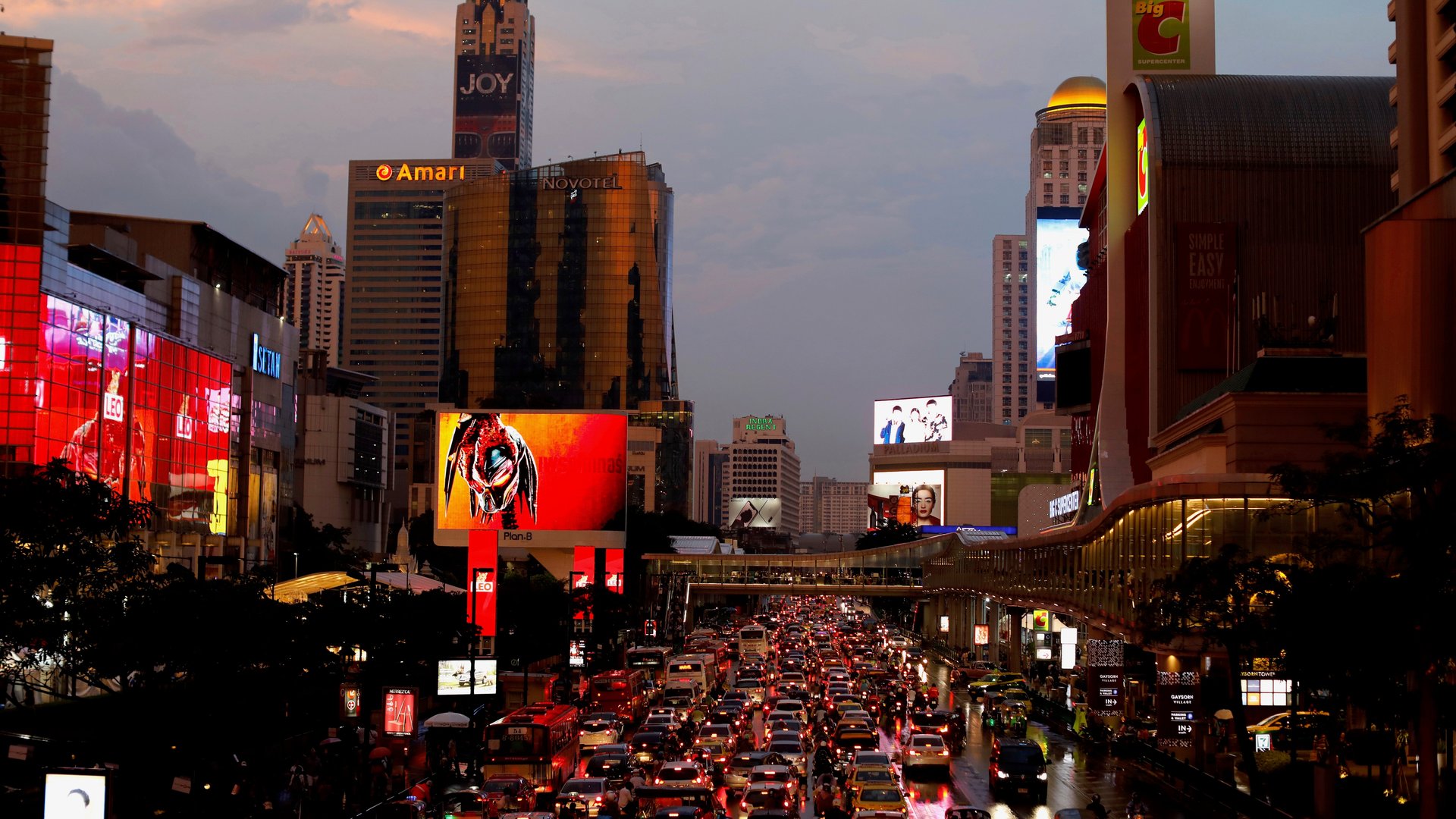The Tesla of Thailand is also an electric utility
If you’re an electricity supplier, investing in electric vehicles makes perfect sense. Trying to also manufacture and sell them, however, would take some courage, especially when there’s little demand for them in your home market.


If you’re an electricity supplier, investing in electric vehicles makes perfect sense. Trying to also manufacture and sell them, however, would take some courage, especially when there’s little demand for them in your home market.
But that’s the path being taken by Somphote Ahunai, the billionaire founder and CEO of Energy Absolute, Thailand’s second-largest electric utility. He envisions the Thai roads of the future filled with his electric vehicles, stopping to power up at charging stations served by his utility.
It’s a bold plan. Then again, the EV business is dominated by dreamers, most notably Tesla’s Elon Musk, and companies like China’s BYD are seeing strong returns on their investment in electric cars.
Plus, Somphote has a powerful player in his corner: the Thai government. Energy Absolute is using subsidies and tax breaks to help fund its new EV subsidiary, called Mine Mobility, a name derived from the company’s goal: “mission no emissions.” This spring at the Bangkok Motor Show, the company, founded in 2017, unveiled its first passenger electric car, a five-seat hatchback with a range of around 124 miles (200 km) per charge and a price tag of $38,000. A Tesla Model 3 or BYD e6 can go further on a single charge, but the Mine Mobility vehicle is cheaper than a Nissan Leaf or Kia Soul EV, and the Thai company promises quick delivery.
Mine Mobility also plans to make a cheaper compact car and a more expensive electric sports car. The company intends to put 5,000 EVs on the road in Thailand by 2020, to be served by more than 700 charging stations. It also plans to build a $3 billion factory to make lithium-ion batteries for the new cars.
The company reports that it has already received orders for 4,500 cars. Of those, about 3,500 come from a group of five taxi unions in Bangkok, Bloomberg reports. The cab companies chose Mine Mobility EVs because the local company promises the earliest delivery dates and the vehicles won’t be subject to import tax rates. Thanapat Suksuthamwong, Mine Mobility’s managing director, says the company is targeting taxi drivers, ride-sharing operators, and rental-car companies. “There’s no better way to showcase the technology than to have people who drive long distances each day do it.”
Somphote is betting that demand for electric cars will rise, and that a local carmaker will triumph, especially if Energy Absolute helps build the infrastructure to make EV driving feasible and easy. “The trend is clear: It’s time for Thailand to stop being complacent and pursue higher technology to drive economic growth,” he told Bloomberg. “EV technology opens up new opportunities for success by new players.”
Still, demand for EVs is weak for now, and formidable competition is on the horizon. There are only about 1,500 electric vehicles circulating in Thailand. China’s BYD plans to deliver 1,100 electric cars to Bangkok this year, and BMW and Mercedes-Benz have also announced plans to produce and assemble EVs locally.
Even for a billionaire power magnate backed by the government, the road will not likely be smooth.